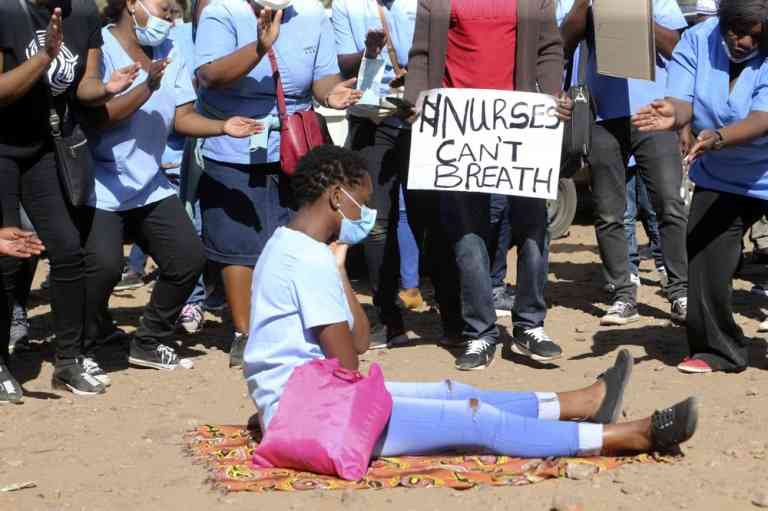
NURSES have complained of being denied access to loans because of poor salaries, saying without being paid in United States dollars, it will be difficult for them to remain in the country.
According to the Health Services Board, at least 4 000 health workers have left the country since 2021.
On Wednesday, health workers complained about their welfare when they appeared before the Parliamentary Portfolio Committee on Health and Child Care.
“Our biggest issue is of salaries. Our salaries are pegged in local currency and at the moment, we get $45 000 and this is not sufficient,” Allan Nyamupinga, a representative of nurses at Parirenyatwa Group of Hospitals told the committee.
Using the black market rate of about US$1: $2 700, this means the nurses may be earning less than US$20.
However, they get United States dollar allowances like other civil servants.
Nyamupinga said their local salary component must be raised to reasonable levels.
“The figure is too little to cater for our needs. If you check, we receive $7 000 as transport allowance. We also get uniform allowance but the money cannot even buy one uniform,” Nyamupinga said.
- Manatsa widow burial tomorrow
- Parirenyatwa in fresh negligence storm
- Education crisis mirrors national problem
- USD fees: Govt policy failure hurting parents
Keep Reading
“As nurses we are unable to get loans from the bank because of the local currency salary component we earn. Our situation as nurses is very dire and needs urgent intervention.”
Zimbabwe Nursing Association Harare provincial chairperson, Lucas Sharara, said: “Can we go back to the 2018 salary as a starting point so that we don’t leave the country.”
Sharara said the Nursing Council Board was also frustrating health workers.
Vice-President Constantino Chiwenga, who doubles as Health minister, has been accused of stifling dissent in the health sector over welfare issues.
In 2018, Chiwenga made international headlines when he fired all striking nurses.
He has now hinted at introducing a law tomake it illegal for foreign nations to hire the country’s healthcare workers.






